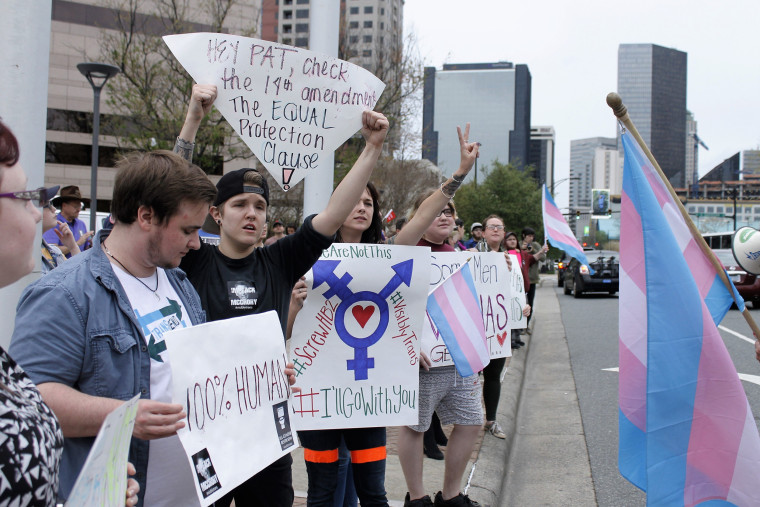The Justice Department notified North Carolina Wednesday that the state's recently enacted law dealing with transgender persons' access to bathrooms violates federal civil rights law.
In a letter, the feds asked Gov. Pat McCrory to notify them by Monday, May 9, that he will not enforce the law.
If the state persists in carrying out the law, known as HB2, its public schools could lose hundreds of millions in federal funds, and the federal government could file a lawsuit to block the law.
But McCrory objected, calling the letter the most extreme "Washington overreach in my lifetime."
"This has never just been a North Carolina issue," McCrory said. "It's just the targeted public relations — and political campaign — has been directed toward North Carolina."
Enacted in March, the North Carolina law limits anti-discrimination protection local laws can offer for lesbian, gay, bisexual and transgender people. And it requires transgender people to use public bathrooms that conform to the sex on their birth certificates.
Related: LGBT Law Strips the State of Business, Investment
The letter, from Vanita Gupta of the Justice Department's Civil Rights Division, said the law discriminates against transgender state employees, violating the federal law that bars sex discrimination.
Federal courts have held that sex discrimination "includes differential treatment based on any sex-considered consideration," it said.
The law discriminates, Gupta said, by denying transgender employees access to bathrooms based on their gender identity while affording access to non-transgender employees.
Similar letters were sent to the to the state's department of public safety and the University of North Carolina.
A Justice Department official said the federal government hopes North Carolina will voluntarily agree to abandon enforcement of the law.
But if that doesn't happen, the U.S. government could cut off federal funds or file a lawsuit or both, the official said.

